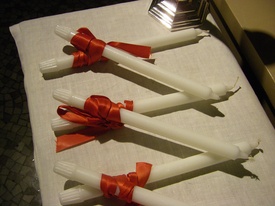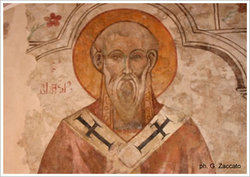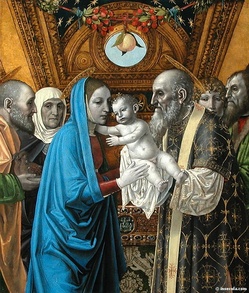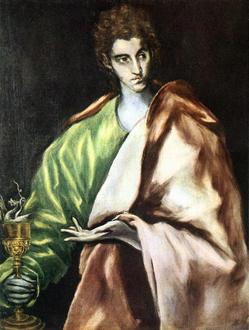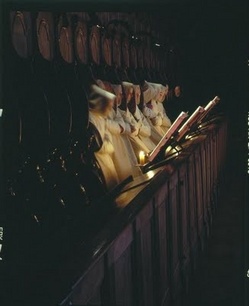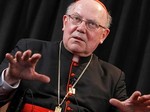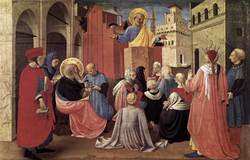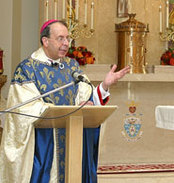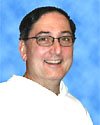Over the Christmas holiday I acquired an icon of Our Lady of Perpetual Help, written by Brother Terrence McGrath, OCSO, a monk of Saint Joseph’s Abbey, Spencer, Massachusetts. In the tradition of the Catholic Church, all icons (religious objects intended for devotion) ought to be properly blessed. The Directory on Popular Piety and the Liturgy teaches us:
The Church blesses sacred images because of their cultic significance. This is especially true of the images of the Saints which are destined for public veneration, when she prays that, guided by a particular Saint, “we may progress in following the footsteps of Christ, so that the perfect man may be formed in us to the full measure of Christ.” (244)
Today, Father Michael Morris, a priest of the Archdiocese of New York and history professor of Saint Joseph’s Seminary (Dunwoodie-Yonkers, NY) properly blessed the icon.
The Blessing of Icons follows:
Priest: Blessed is our God always, both now and ever, and unto ages of ages:
Server: Amen.
Priest: Holy God, Holy and Mighty, Holy Immortal One, Have mercy upon us.
Priest:

O Lord our God, Who created us after Your own image and likeness; Who redeems us from our former corruption of the ancient curse through Your man-befriending Christ, Who took upon Himself the form of a servant and became man; Who having taken upon Himself our likeness remade Your Saints of the first dispensation, and through Whom also we are refashioned in the image of Your pure blessedness; Your Saints we venerate as being in Your image and likeness, and we adore and glorify You as our Creator; Wherefore we pray You, send forth Your blessing upon this Icon, and with the sprinkling of hallowed water.
Bless and make holy this icon untoYour glory, in honor and remembrance of Your Saint (N) [or, Mother of God]; And grant that this sanctification will be to all who venerate this icon of Saint (N) [or, Mother of God], and send up their prayer unto You standing before it; Through the grace and bounties and love of Your Only-Begotten Son, with Whom You are blessed together with Your All-Holy, Good and Life-creating Spirit; both now and ever, and unto ages of ages.
Server: Amen.
Sprinkling cross fashion the icon with holy water, he says:
Hallowed and blessed is this icon of St. (N) [or, Mother of God], by the Grace of the Holy Spirit, through the sprinkling of Holy Water: in the Name of the Father (+), and of the Son and of the Holy Spirit: (+), Amen.
Priest: Let us pray to the Lord.
Server: Kyrie eleison.
Priest:
O God our Savior, Who did deign to enter under the roof of Zacchaeus, unto salvation of the same and of all that were in the house; Do you, the same Lord, keep safe also from harm them who now desire to dwell here, And who, together with us unworthy ones, do offer unto You prayer and supplication: Bless this (+) their home and dwelling, and preserve their life free from all adversity; For unto You are due all glory, honor and worship, as also unto Your Eternal Father, and Your All Holy, Good and life-creating Spirit; both now and ever, and unto ages of ages:
Server: Amen.
